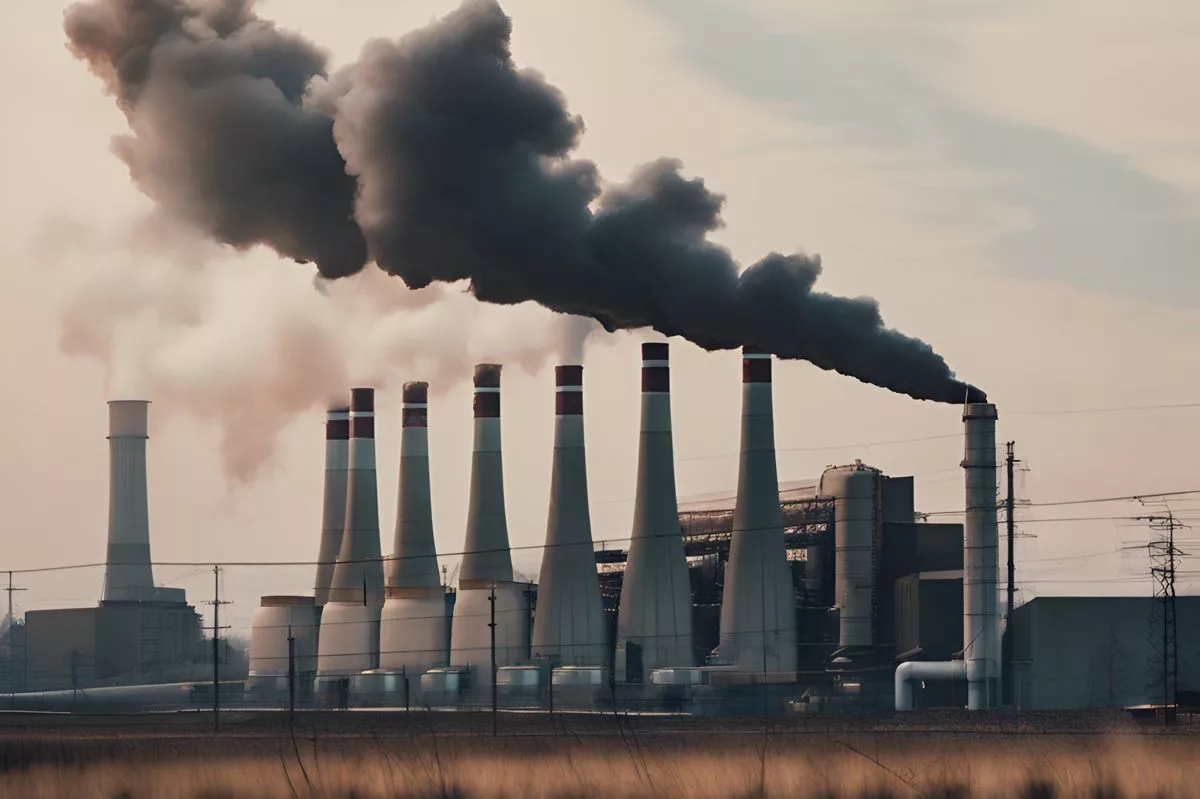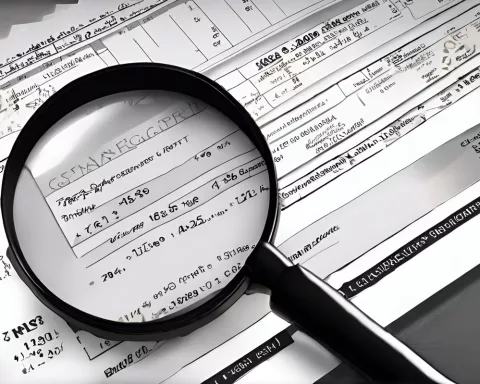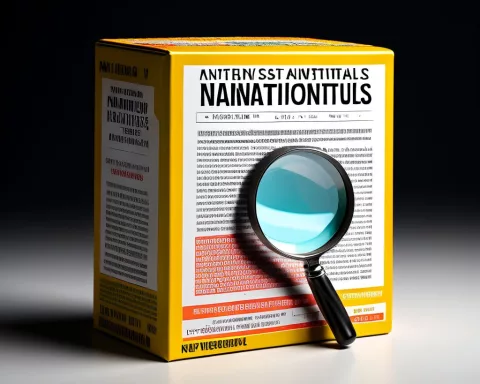SCOPA, the Standing Committee on Public Accounts, is like a watchful guardian for South Africa’s public enterprises, ensuring they are fair and efficient. This week, they are visiting Eskom, the country’s main electricity provider, and PRASA, which manages trains. These visits help SCOPA see how these companies are running, checking for problems and ways to improve. By doing this, SCOPA hopes to make sure that these crucial services work well for all South Africans, bringing accountability and a brighter future for everyone.
What is SCOPA’s role in overseeing South Africa’s public enterprises?
SCOPA (Standing Committee on Public Accounts) plays a critical role in ensuring accountability and transparency in South Africa’s public enterprises, such as Eskom and PRASA. Through oversight visits, SCOPA evaluates operational performance, governance, and financial health, aiming to address issues and promote continuous improvement.
The Vital Role of Parliamentary Oversight
The often overlooked function of parliamentary committees in government operations plays a pivotal role in ensuring accountability and transparency. This week, the Standing Committee on Public Accounts (SCOPA) embarks on critical oversight visits to two major public enterprises in South Africa: Eskom and the Passenger Rail Agency of South Africa (PRASA). These visits are designed to evaluate and analyze their operational and financial statuses, addressing issues previously highlighted in audits and investigations.
Eskom, South Africa’s main electricity supplier, remains a focal point of public discussion due to its essential role in the country’s energy security. SCOPA’s upcoming visit to Eskom’s Medupi Power Station continues efforts initiated by the 6th Parliament, concentrating on observing Eskom’s operational strategies. Special attention is given to recurring challenges at Medupi. The committee has planned multiple discussions with Eskom’s Board and executive management to gain insights into the utility’s current performance. This engagement highlights SCOPA’s unwavering dedication to promoting transparency and accountability, essential for South Africa’s economic stability.
Historically, the oversight committee’s role can be likened to transformative art movements that challenged prevailing norms. Just as Impressionists revolutionized traditional art techniques, SCOPA seeks to redefine the operational standards of state-owned enterprises. Their oversight process extends beyond identifying flaws to fostering a culture of enhancement and resilience.
Evaluating Eskom’s Operations and Challenges
During the visit, SCOPA will scrutinize key areas such as operational and financial performance, governance, compliance, and cost-saving initiatives. Addressing these elements is crucial for Eskom to overcome financial instability and operational hurdles. Previous audits have consistently raised governance and compliance as areas of concern, underscoring the necessity for effective oversight. The committee aims to revisit earlier findings and examine the efficacy of the implemented recovery plans.
SCOPA’s oversight visit to PRASA is equally significant, as this entity plays a vital role in South Africa’s transportation sector, affecting millions daily. A recent briefing by the Auditor-General pointed out significant non-compliance issues in procurement, contract management, and expenditure. PRASA received a qualified audit opinion for the 2022/23 financial year, necessitating a thorough probe into the identified shortcomings. SCOPA’s agenda includes discussions on operational and financial performance, echoing similar themes of governance and compliance addressed during their Eskom visit.
Drawing parallels from history, the need for reform within PRASA reflects the transformative spirit of early 20th-century artistic movements like Cubism. SCOPA’s role involves piecing together fragmented operational and financial elements within PRASA, aiming to create a cohesive and transparent structure. The goal is to align PRASA’s operational efficiency with international standards, ensuring accountability and sustainability.
Addressing Governance and Accountability
Moreover, SCOPA’s discussions with PRASA’s leadership will focus on recovery plans, examining operational performance, financial health, and governance. The emphasis on consequence management mirrors a broader societal demand for accountability, a recurring theme in both historical and contemporary governance narratives. The committee seeks to understand how PRASA’s leadership intends to rectify the issues highlighted by the Auditor-General and the Special Investigating Unit.
These oversight visits occur at a time when the transport and logistics sector is critically important. The sector’s health directly affects economic growth and the quality of life for South Africans. Reliable and efficient transport services are essential for business prosperity and individual access to important services, emphasizing the sector’s strategic importance. SCOPA’s oversight transcends mere committee work; it serves as a crucial tool for ensuring that public enterprises effectively support the nation.
While SCOPA’s main focus is the operational and financial evaluation of Eskom and PRASA, these visits also symbolize a broader mission for structural reform and improved accountability within the public sector. The committee’s efforts reflect an understanding that robust oversight is integral to the broader democratic framework, resonating with historical movements aimed at redefining societal norms.
Charting a Path Forward
As SCOPA continues its oversight duties, it draws on a rich tapestry of historical lessons and modern challenges. The committee acknowledges the significant impact these enterprises have on shaping the nation’s socioeconomic landscape. The visits to Eskom and PRASA represent not only an assessment of current practices but also a commitment to nurturing a culture of transparency, accountability, and continuous improvement.
In conclusion, while the oversight visits to Eskom and PRASA are noteworthy events in SCOPA’s agenda, they represent an ongoing journey toward refining governance and operational excellence. These visits remind us of historical efforts to transform societal structures, highlighting the enduring importance of oversight in sustaining democratic values and promoting public welfare.
FAQ: SCOPA’s Oversight Role in South Africa’s Public Enterprises
What is SCOPA and what does it stand for?
SCOPA stands for the Standing Committee on Public Accounts, which is a parliamentary committee in South Africa responsible for ensuring accountability and transparency in public enterprises. They evaluate the operational and financial performance of entities like Eskom and PRASA to address issues and promote continuous improvement.
Why is SCOPA visiting Eskom and PRASA?
SCOPA is visiting Eskom, the primary electricity supplier, and PRASA, which manages the country’s train services, to assess their operational and financial statuses. These visits aim to address previously identified issues in audits and investigations, ensuring these essential services operate efficiently and effectively for all South Africans.
What specific areas will SCOPA focus on during their visits?
During their visits, SCOPA will scrutinize key areas such as operational performance, financial health, governance, compliance, and cost-saving initiatives. These elements are critical for both Eskom and PRASA to overcome financial instability and operational challenges highlighted in previous audits.
How does SCOPA’s role compare to historical movements?
SCOPA’s oversight role can be likened to transformative art movements like Impressionism and Cubism, which sought to redefine norms and enhance operational standards. Just as these artistic movements challenged traditional techniques, SCOPA aims to foster a culture of enhancement and resilience within state-owned enterprises.
What issues did the Auditor-General highlight regarding PRASA?
The Auditor-General pointed out significant non-compliance issues in PRASA’s procurement, contract management, and expenditure, resulting in a qualified audit opinion for the 2022/23 financial year. SCOPA’s discussions with PRASA’s leadership will focus on recovery plans to rectify these issues and improve governance and accountability.
Why are SCOPA’s oversight efforts important for South Africa?
SCOPA’s oversight efforts are crucial for ensuring that public enterprises like Eskom and PRASA operate effectively, which directly influences the country’s economic growth and quality of life for its citizens. Reliable public services are essential for business prosperity and individual access to vital services, making SCOPA’s role integral to maintaining democratic values and public welfare.













